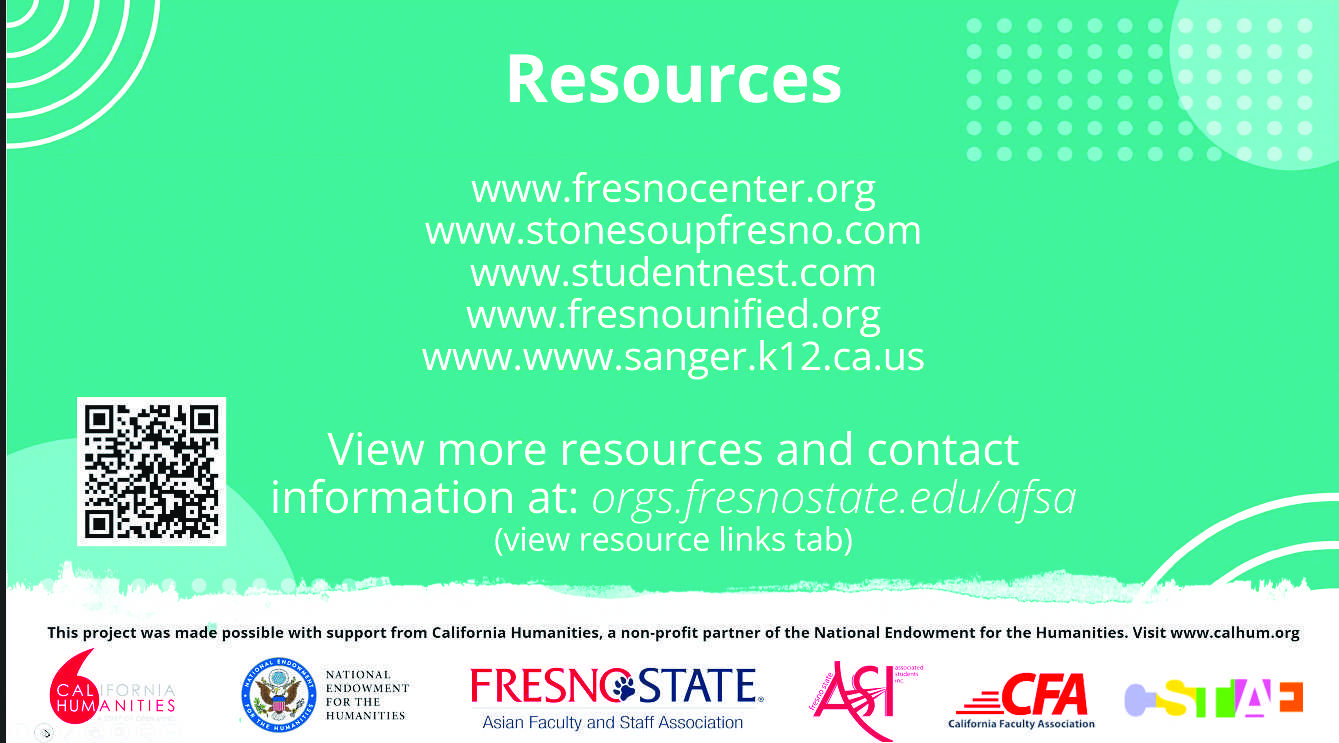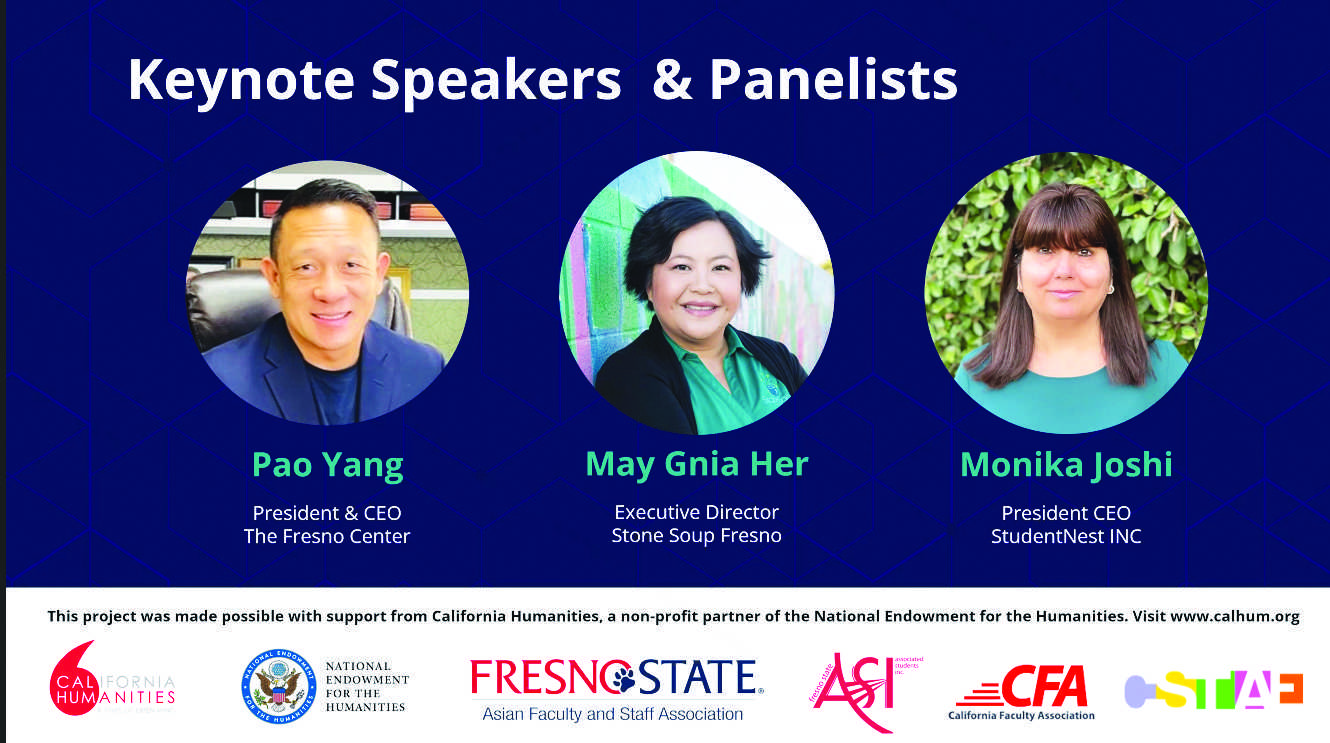The Asian Faculty and Staff Association (AFSA) held the first of two Zoom panels March 30 to focus on anti-Asian crimes and other challenges the Asian Americans and Pacific Islanders (AAPI) community in California are facing.
Hosted by the AFSA, the “Community Dialogue: Exploring AAPI Communities in Central California” event raised concerns about the increase in anti-Asian crimes and other ongoing concerns over safety and issues within the AAPI community.
Members of the panel ranged from Misty Her, the deputy superintendent of Fresno Unified School District, to Monika Joshi, the president and CEO of Studentnest INC. Members shared how their own experiences during the pandemic and life in their communities have shaped their behaviors as members of the AAPI community.
Her has noticed that students in particular have been impacted deeper from both the effects of the pandemic and anti-Asian sentiment.
“Our students didn’t necessarily speak up because either they were afraid or, if something happened to them and they went back home. The natural inclination for our Asian-American students from their parents is [to say] ‘It’s OK, we don’t want any problems,’ and so they just let it go,” Her said.
After noticing rising anti-Asian sentiment, Her said it was important that she made sure that every adult in their system knew what was happening to their students.
Empowering others to find their voice was something Her said she thought was important to make sure students were comfortable with when incidents occur that need to be shared with an adult.
“We’ve had a couple of incidents where things would happen to students either prior to the actual closing of school, or when we were virtual, or this year when we returned back,” Her said.
Her said that when working with the families regarding those incidents, oftentimes the families dismissed the incident altogether than address it at all.
“I felt like I had to go ‘No, we will not overlook it. That is not right what happened to your child and we will do something about that,’ and I found that a lot of the families were [like], ‘I didn’t know that I could speak up,’” Her said.
The importance of knowing you can speak up for yourself and knowing that there’s someone there to listen, is something Her thinks is not understood among some students and parents, so she hopes to bridge that gap.
“I think it’s really important that we teach our community and that we teach our children that it’s OK to speak up, and it’s OK for you to surface it. But as a system it’s our responsibility to make sure that when our adults do something or say something that is not right to our students [or] to our families, [that] we hold people accountable,” Her said.
Creating a space where students and family feel safe to share and report behavior, such as teachers making racial jokes about students, is something Her wants others to hold each other accountable for. Her said she wants students to be able to have the chance to report incidents that occur to adults and have them actually do something rather than laugh it off.

At the end of the panel for the AAPI Community Dialogues, panelists shared resources such as links for the Fresno Center, Stone Soup Fresno and Student Nest for anyone in need or interested in volunteering.
The next AAPI Community Dialogue is Tuesday, April 5 from 4:30 – 6 p.m., and will feature five Fresno State faculty, staff and administrators who will share their personal experiences as well as give insight into the unique aspects of the AAPI communities within the Central California region.




